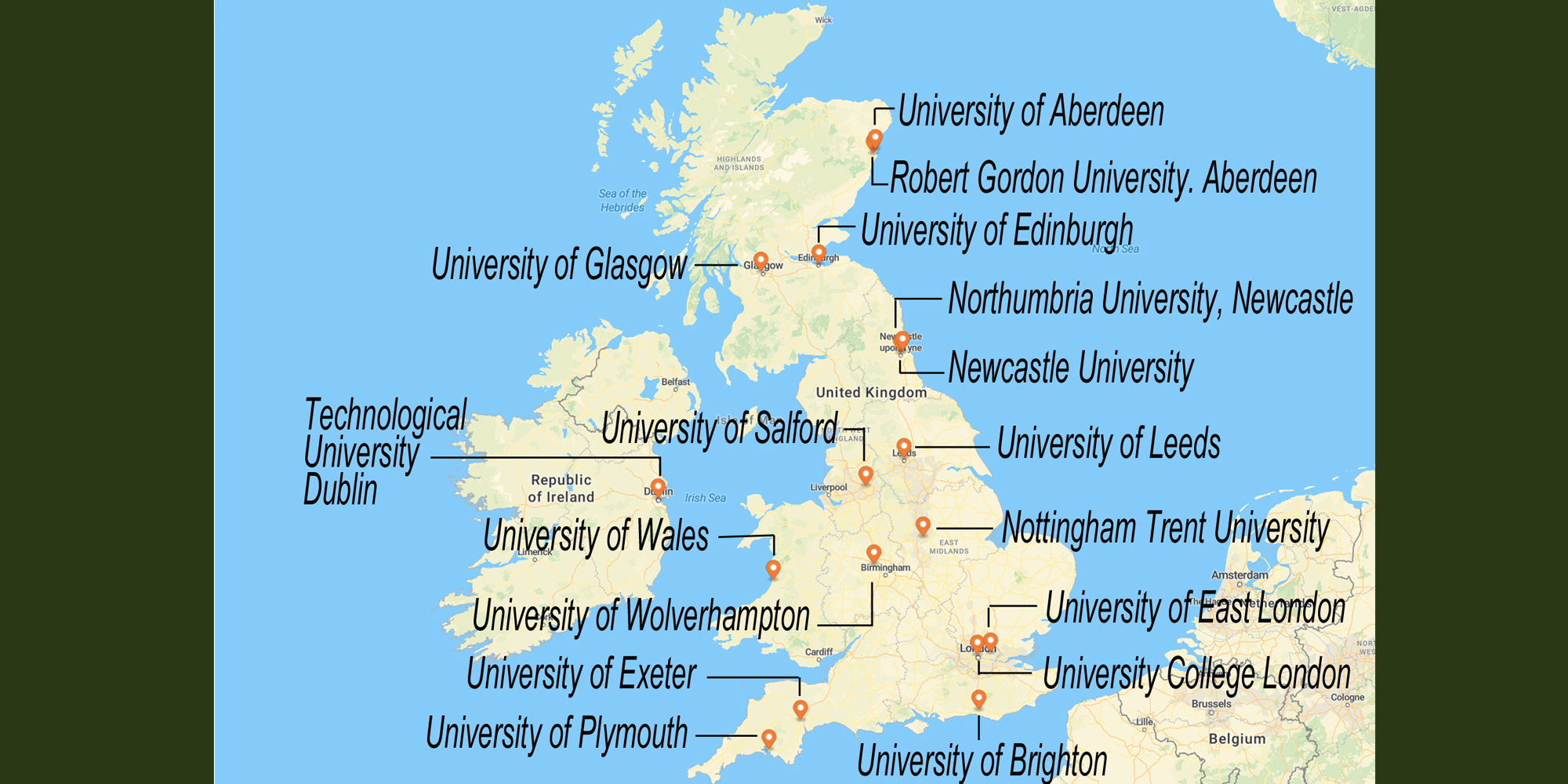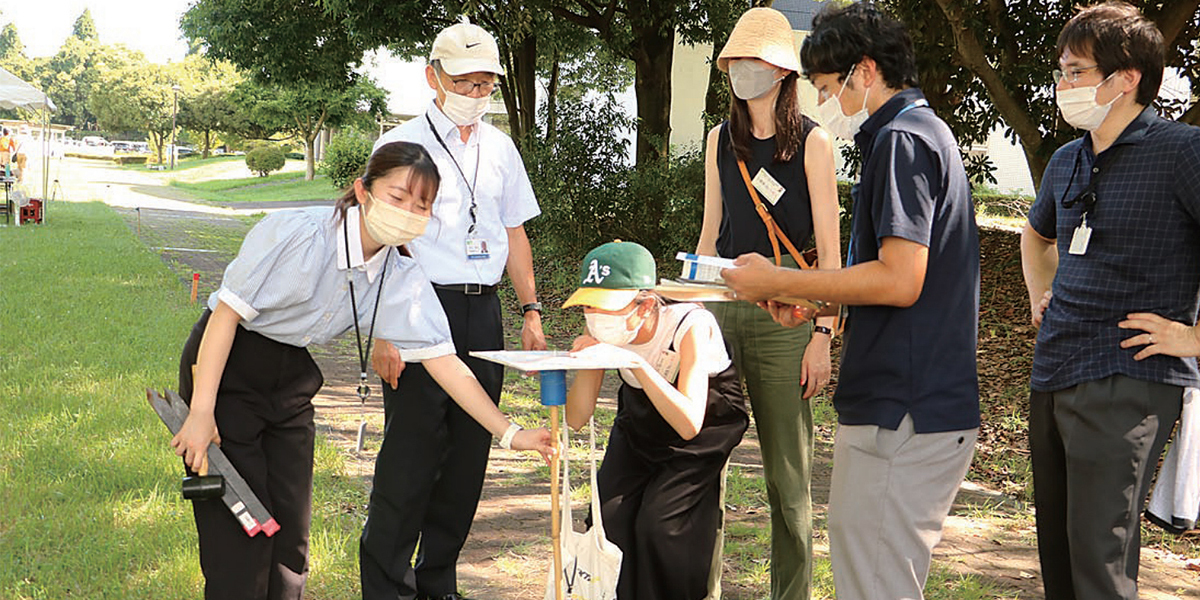The UK government’s strategy is to establish the nation as a geospatial pioneer by 2030 by integrating the economy into a geospatial ecosystem. This will call for a rigid skills network to be developed using homegrown talent. Colin Murphy explores how it might be achieved

For a sector that crosses paths with almost every industry that plays a part in our built and natural environment, why does the geospatial sector face a significant challenge when it comes to recruitment? I believe it starts with a brand exercise.
Be louder and prouder
Although geospatialists provide a key service and critical information to the architecture, construction, and engineering fields, amongst many others, from a profile perspective, geospatial can have the appearance of a plus one, rather than the star of the show.
There’s a limited amount of boastfulness in the geospatial sector. We’re built on data and delivering verified and validated truths to clients. Numbers don’t lie nor can they be embellished. It’s satisfying to work within the parameters of precision and accuracy, but does it make a good story if it doesn’t offer something along the lines of ‘the biggest, the tallest or the most beautiful’? Being ‘the most correct’ gets less fanfare, regardless of how fundamental geospatial is to the execution of these superlative assets.
With a culture of quiet control, how do we solve the problem of attracting fresh talent to the industry amongst the noise from the likes of tech and AI? One country that is tackling the issue head on is Germany.

The German Association for Geodesy (DVW) launched a campaign this year to build young people’s awareness of the exciting career opportunities in the geospatial industry. The initiative involves a social media campaign named 'Weltvermesserer' (see image above) on Facebook and Instagram.
This campaign aims to spark young people's interest in geodesy, drawing inspiration from the German term 'Weltverbesserer' (meaning idealist/world improver). It could potentially set a precedent for similar efforts in other countries.
Create more routes into the sector
Within the UK’s geospatial strategy, a key element was the importance of growing the UK’s geospatial network and skills and building confidence in the future geospatial ecosystem within the UK and internationally. This included aligning geospatial methods to emerging technologies, collaborating with global partners to help the UK remain as one of the global pioneers in science and technology, and develop a strong skills network, particularly within schools and universities. Despite this announcement and efforts from the government, there some parts of this plan that need critical intervention if they are to be successful.
There are a number of pathways available to prospective geospatialists which include studying at university, taking up an apprenticeship, or choosing the recently launched T Level. However, whilst the range is there, geospatial still stands as the poor relation when compared to its peers in the AECO (Architecture, Engineering, Construction and Operation) space. According to Geospatial UK, there are 17 universities in the UK currently offering geospatial degrees. Comparatively, WhatUni shows that there are 70 universities offering civil engineering degrees and 78 universities offering architecture, building, and planning degrees.

As for apprenticeships, according to the Construction Industry Training Board (CITB), there are over 100 different apprenticeships in construction. For geospatial, there are four. This is a hugely important route into the sector. For many, a degree may not be a practical option for them, they may not have the right qualifications to meet the entry requirements or cannot afford to attend university. Far from being the lesser option, an apprenticeship could give the learner the most up-to-date experience with real work experience and current applications, all whilst being able to earn a wage. This option needs to be strengthened with more opportunities, not less.
Geospatial education, education, education
Both routes rely on the all-important supply and demand. We, as a sector, need to get better at talking about what we do with passion and making sure that it resonates with young people to drive that demand. There are hundreds of thousands of young people who are gifted with numbers, have an eye for detail, are critical thinkers, analytical in their nature or they love new technologies. They don’t even know geospatial could offer them access to all these things and could be their ideal career.

A country which revaluated the importance of geospatial education in its curriculum was Japan. In 2016/17, Japan underwent a revision of its National Courses of Study, wherein it was proposed that the Geospatial Information Authority of Japan (GSI) should assume a more significant role within geography education.
GSI highlighted that the lack of geospatial education was leading to a weakening of ties between people and the land around them, and less education about the need for disaster reduction. GSI discovered that students could utilise geospatial technologies to identify the formation of local landforms and to gather information to devise solutions for addressing social challenges.

By employing constructivist approaches and methods involving Geospatial Science and Technology (GST), students become proactive explorers of their own comprehension, enabling them to learn through personal experiences rather than being recipients of passive information. We need to take inspiration from the proactive approach to school-based learning and drive the true value of geospatial data from day one.
To unlock the full potential of geospatial applications, the UK must recognise the indispensable role of a well-trained workforce, capable of both advancing and effectively employing new technologies. Achieving this relies on cultivating a steady stream of skilled individuals into the geospatial field and that will take some effort on the part of the sector itself.
Colin Murphy is Chief Business Development Officer at London-based Murphy Geospatial, a provider off proven geospatial solutions through the design, construction and in-use phases of projects across the key sectors of infrastructure, manufacturing, industrial and power, property, construction, and the natural environment. (https://murphygs.com/)
Subscribe to our newsletter
Stay updated on the latest technology, innovation product arrivals and exciting offers to your inbox.
Newsletter

